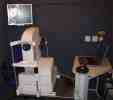 | Caithness.Org | Community | Business | Entertainment | Caithness... | Tourist Info | Site Map |
• Advertising • Chat Room • Contact Us • Kids Links • Links • Messageboard • News - Local & Scottish • News - UK & News Links • About / Contact Us • Submissions |
• Bookshop • Business Index & News • Jobs • Property For Sale • Property For Rent • Shop • Sutherland Business Index |
• Fishing • Fun Stuff • George, The Saga • Horses • Local Galas • Music • Pub Guide • Sport Index • What's On In Caithness |
• General Information • B & Bs • Backpackers • Caravan & Camping • Ferries • Getting Here • Holiday Letting • Hotels • Orkney • Pentland Firth • Sutherland • Taxis |
| N E W S F E E D S >>> |
Caithness News Bulletins July 2006
|
7 July 06 Diabetic Retinopathy Screening Goes Mobile NHS Highland�s Diabetic Retinopathy Screening Programme has gone mobile, benefiting the 7500 diabetes patients in Highland who need to be screened.
Diabetic Retinopathy is the leading cause of blindness in the working age population, and everyone with diabetes is at risk of developing this condition, which fortunately can usually be successfully treatable if detected early when at an asymptomatic stage. NHS Highland now has two dedicated digital retinal cameras used for diabetic retinopathy screening. One is based in the Diabetes Retinal Screening Centre at Raigmore Hospital, Inverness, and the other in a fully equipped self contained mobile unit which will be travelling widely to other outlying areas throughout Highland. Gavin Sell, Project Manager for Diabetes Retinal Screening, explains: �Before we had the mobile unit patients either had to come to Inverness for their screening or were referred to their local Optometrist; now the unit will come to them. All diabetic patients aged 12 and over, with some clinical exceptions, need to be screened at least once a year. We now have this new mobile facility which means patients won�t need to travel as far and we hope it will speed up the referral process.� Screening started at Raigmore Hospital on the 31st May and the mobile unit made its first stop at the GP practice in Fortrose at the beginning of June. Around 30 patients can be seen per day using the mobile unit, which is also equipped to take patients in wheelchairs, and 35 patients can be seen per day at the retinopathy centre based at Raigmore Hospital. Dr Roderick Harvey, Clinical Director for the Medical Directorate at Raigmore Hospital and Clinical Lead for the NHS Highland Diabetic Retinopathy Screening Programme, agrees that the new programme will be of great benefit to patients. He adds: �For people with diabetes living outside Inverness the mobile screening unit should be at a GP surgery in their area at least once every two months. There will also be an opportunity to come into the fixed site in Inverness should this be more convenient. The new screening programme will be quality assured as part of the Scottish National Diabetic Retinopathy Screening Programme and will be delivered to strict standards as laid down by Quality Improvement Scotland1. We are confident therefore that not only will the new programme provide wider coverage and be more convenient to patients than previous arrangements, but that it will be of much higher quality in terms of both its technical performance and efficiency from the patient�s perspective. Importantly the new programme includes a regional call and recall system so that everyone with diabetes who needs retinal screening will be automatically called at the proper time.� �All people with diabetes run the risk of developing Retinopathy which is a condition that affects the small blood vessels at the back of the eye and which can cause serious eyesight damage and ultimately blindness in some cases.� �In the early stages there are no obvious symptoms, which is why systematic screening is so important. If detected early enough the condition can usually be effectively treated using laser therapy. The risk of developing diabetic retinopathy can be substantially reduced by maintaining good blood glucose control and by the aggressive treatment of high blood pressure where appropriate but it can never be guaranteed that retinopathy will not develop, which is why it is now national policy that all people with diabetes aged over 12 years, and who would potentially benefit from treatment, are offered retinal screening to the nationally defined standards.� The mobile unit was at the Dunbar Hospital in Thurso from the week beginning the 3rd July 2006 until 5th July and at the Riverview GP Practice in Wick on 6th and 7th July. Further information: 1 http://www.nsd.scot.nhs.uk/services/drs/drstandards2004.pdf |











